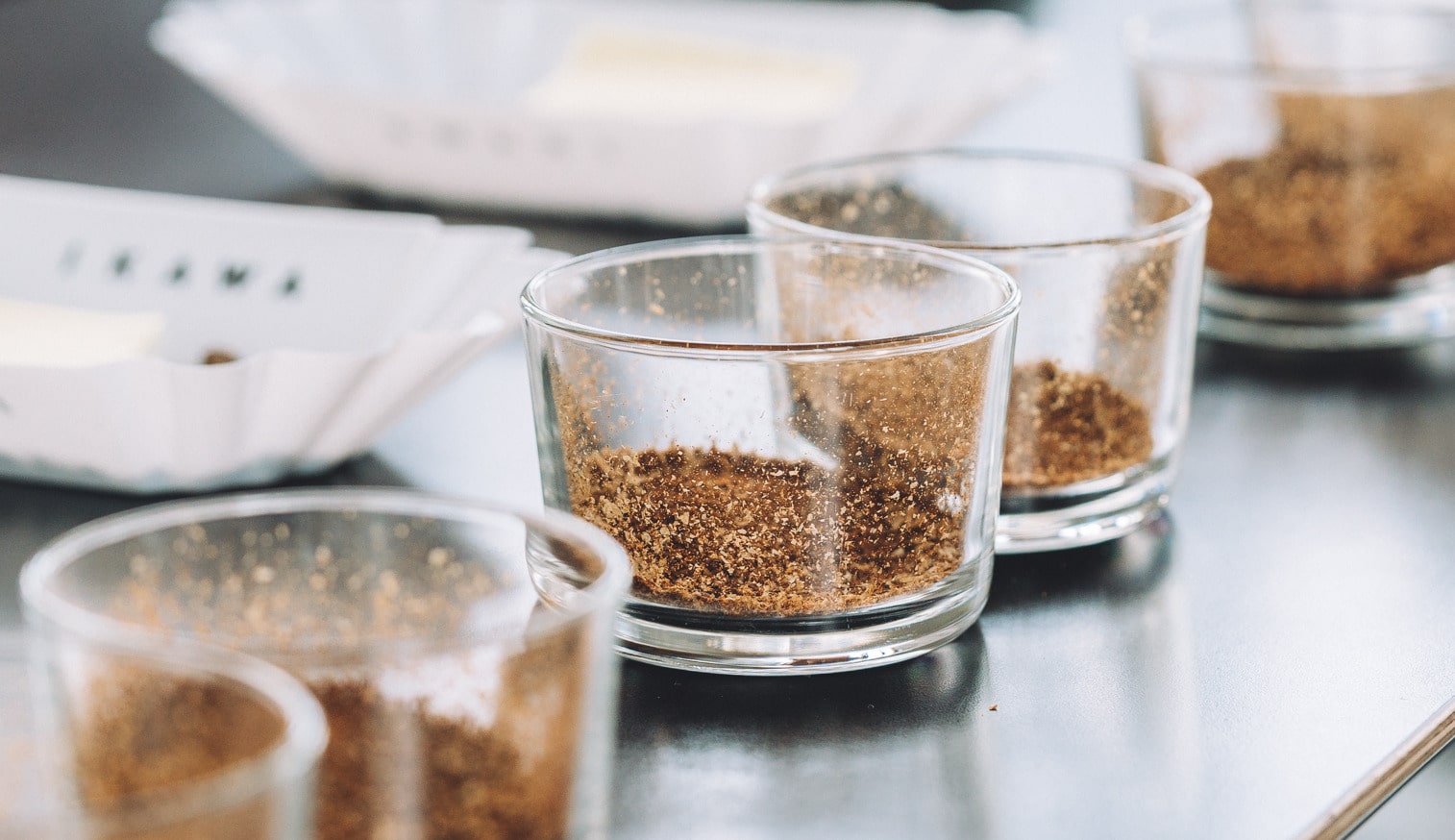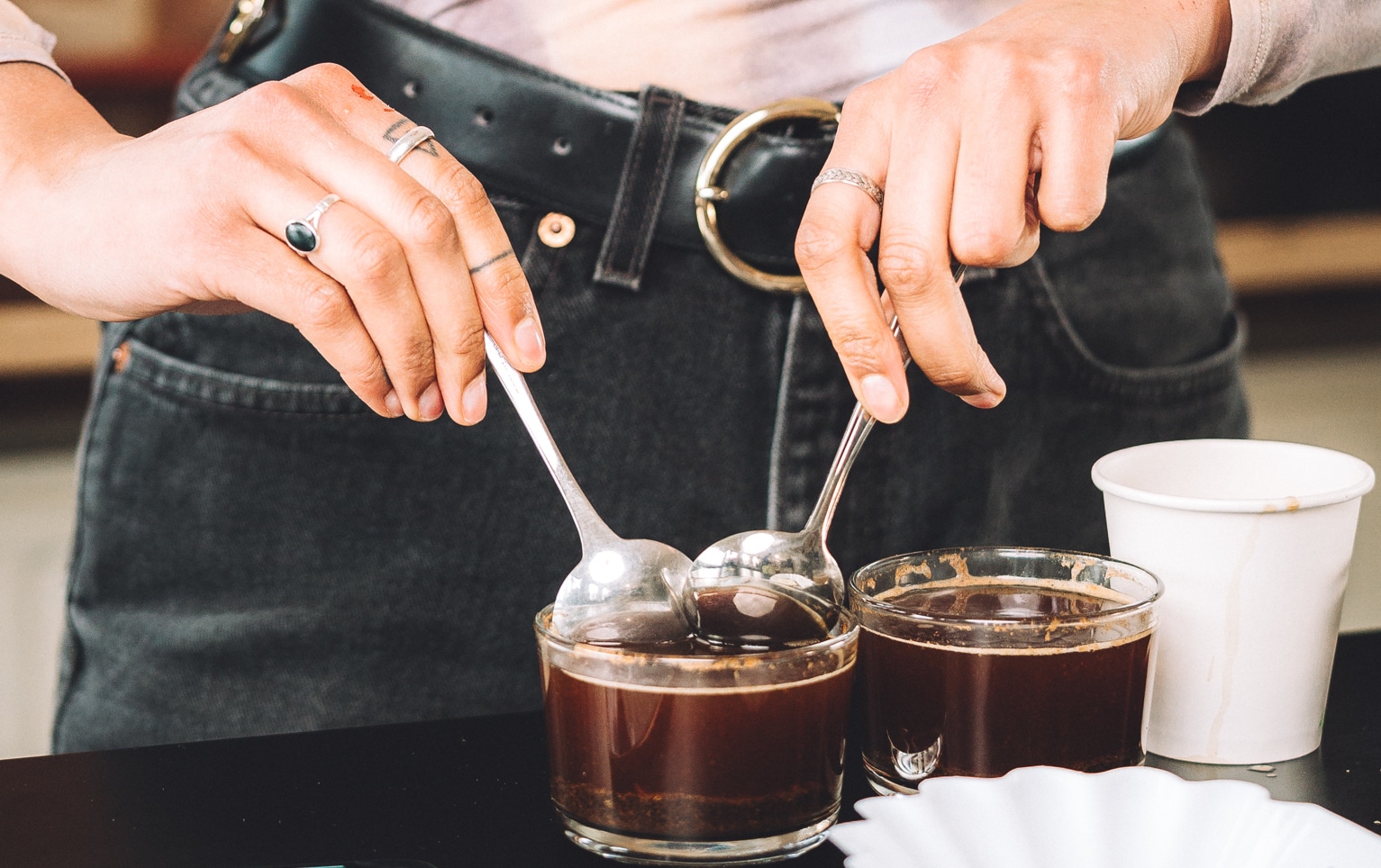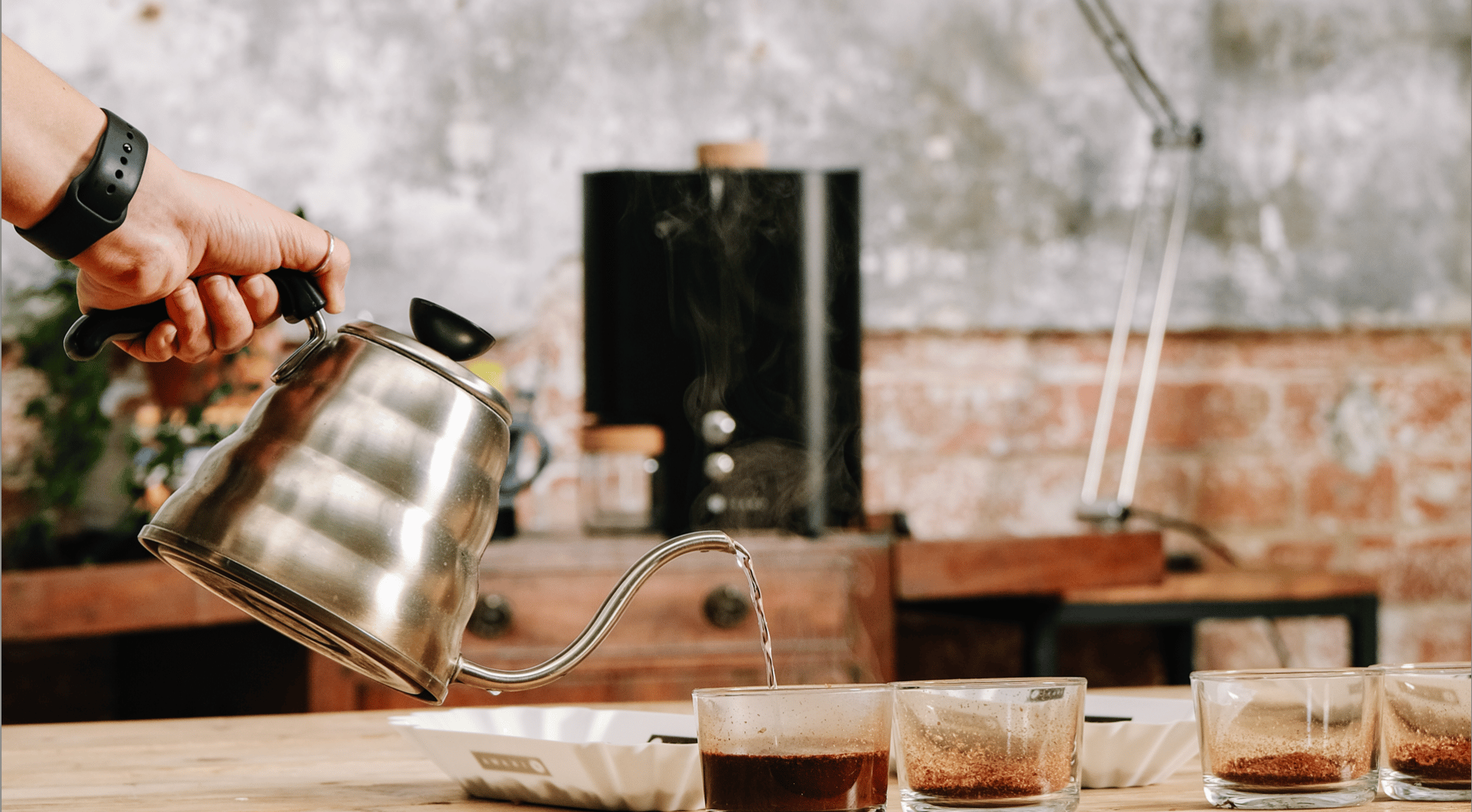In this post, we explain why sample roasting is essential for any coffee roasting business.

In this post, we explain why sample roasting is essential for any coffee roasting business.
Our businesses are built on the coffees we buy and we commit a lot of cash to our green coffee: It’s what we roast, sell, and serve – so making good purchase decisions about green coffee is essential.
That business importance isn’t limited to the roastery. We owe it to producers to have robust and fair sample evaluation processes as the evaluation and buying decisions we make run right through the supply chain.
If you’re not roasting your own samples already, we explain why you simply cannot afford not to. We also outline how getting your samples roasted by your importers may feel easy, but is a false economy. It’s not better for your evaluation process, production roasting or your business.

This is not to say that importers don’t roast samples well – many do. In fact, many use IKAWA roasters for this! But a good roast for one person is not the same as a good roast for another.
Your sample roasting will also match how your grinder and water extract. You can dial in your roasts to ensure proper and consistent extraction during your cupping.
When you roast your own samples, you can take full control of these key aspects.

When you’re selecting the next single origin Colombian coffee, you might cup from 5 or 6 samples – or maybe more. If they are coming from more than one importer, it will make it really hard to have a fair cupping.
You shouldn’t be evaluating how well one trader can roast coffee compared to another – it should be about the coffee itself.
Removing roast quality and freshness from the variables allows you to focus on the coffee, and have confidence that you’re making the best choice.
See how IKAWA customers Square Mile, Caravan Coffee Roasters, Workshop Coffee, Calendar Coffee and Redemption Roasters approach term sample roasts in this blog here
There is nothing worse than organising a cupping, making studious notes and getting really excited about your next purchase, only to find that the coffee has sold out already. Something we can all relate to. What a waste of time.
If you rely on roasted samples from multiple importers, it will take longer to hold your cupping.
You have to wait for all the samples from different importers to arrive before you can cup them properly. This can take days, even weeks and it can take longer for importers to send out roasted samples in the first place.

Selecting a coffee is not just about a cupping score. When you are evaluating a coffee, you are also trying to get a 3D understanding of it, so you can have maximum confidence in your production roasts. You may want to know:
Do you know what you have been missing?
If you don’t receive a green sample, you are only getting half the information on the coffee before you go ahead and buy it.
Aside from the coffee itself, the business dimension should not be overlooked. When you roast your own samples you take control of your green coffee purchasing decisions in a way that suits your business.

If you can find an importer willing to send you big enough sample sizes, you’ll find it’s too big to control it accurately, very hard to roast consistently in such small volumes and it’s unlikely you’ll get flavour development that will help you get a true picture of the coffees.
We hope these notes have helped unpack some of the value around why sample roasting is essential for you and your business – your samples will be better roasted, you will have better cupping, faster decision-making, you will better understand the coffee you buy and the business will be all the stronger for it. And your importers will like working with you more : )
Talk to the team, or read more about the Pro Series of Pro50 and Pro100 and the IKAWA Pro App here